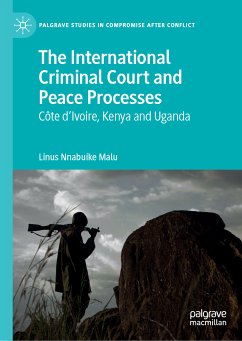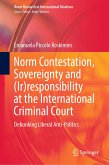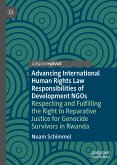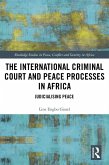This book explores the extent to which the International Criminal Court (ICC) has influenced peace processes in Cöte d'Ivoire, Kenya and Uganda. It examines how the prosecution of those who bear the greatest responsibility for crimes committed in these countries may have negatively or positively influenced the process of making peace in their wake. It is concerned with how international accountability affects post-conflict countries and what the ICC brings to peace processes. The central question addressed by the book is whether justice spurs peace in post- conflict societies or whether justice complicates the peace process. If so, how?
Relying on qualitative studies in these countries, this book comparatively analyses the impact of the interventions of the ICC in Uganda (2004), Kenya (after the 2007/2008 post-election violence), and Cöte d'Ivoire. Its aim is to provide an evidence-based account of how the involvement of the ICC in thesecountries influences the processes of promoting peace. To gauge this, Malu develops an analytical framework which is based on four variables: deterrence, victims' rights, reconciliation and accountability to the law. This book will appeal to those interested in post-conflict reconstruction, transitional justice, peace studies, conflict transformation, and international criminal law, including peace practitioners and those working in the field of international justice.
Dieser Download kann aus rechtlichen Gründen nur mit Rechnungsadresse in A, B, BG, CY, CZ, D, DK, EW, E, FIN, F, GR, HR, H, IRL, I, LT, L, LR, M, NL, PL, P, R, S, SLO, SK ausgeliefert werden.









